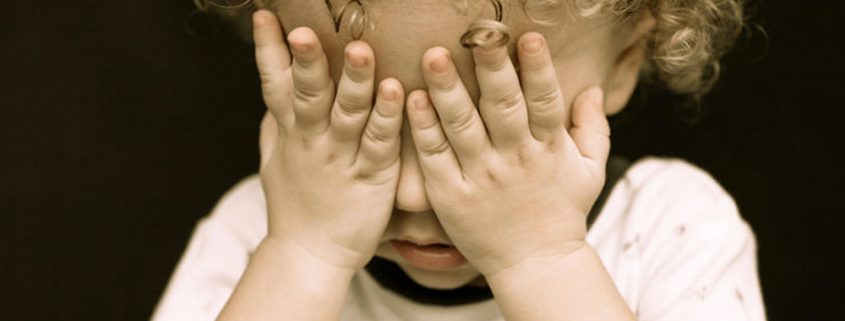HOW TO CATCH DEPRESSION BEFORE IT CATCHES YOU
When we think of depression, we may imagine being permanently pyjama-clad, lying in bed or on the sofa in a dark room, unable to move. Clinical depression (or major depressive disorder) can look this way and the Internet and media often paint this picture.
If we research depression symptoms online, it usually brings up Clinical depression information, leaving some of us thinking that, it feels bad but it’s not as bad as all that.
But some depressive symptoms are less recognizable. Most of us are busy. We might feel down but we can’t afford to stop. Even when a situation (like a breakup) triggers deep sadness in us, we have to keep going. So the symptoms are subtler, more gradual, and easier to disregard. They sneak up on us and if unaddressed they can become debilitating.
Recognise any of these?
– A sense of heaviness you can’t shake
– Impatience, irritability, quickly losing your temper over little things
– Growing intolerance of others, our surroundings, or ourselves
– Heightened awareness of negative things
– An emboldened inner critic, bullying ourselves or self-loathing
– Incessant worrying (going over the same thing again and again) or catastrophizing (using words like always and never)
– Wanting to hide from the world and avoiding things that make us feel better (friends, exercise, nature)
Our brain activity is habit forming; the more we think and feel certain ways, the more likely we will think and feel that way in the future. A persistent low mood can spiral into depression and the lower we spiral, the harder it is to pick ourselves back up.
We all have low moods but when feelings of depression seem unshakeable, it is time to start paying attention to them. One of the best ways to deal with depression is to catch it early.
Here is how:
– Become mindful of how you talk to yourself. Would you lose friends if you talked to them the way you talk to yourself? Your inner critic may have pushed you to do better but it can push you down that depression spiral too.
Get blood tests from your doctor. Low mood can be a side-effect of any number of physical ailments: nutritional deficiencies, bacterial imbalances in your gut, hypothyroidism or hyperthyroidism, fibromyalgia, hormonal imbalance, food allergies, infections, and medications.
– Create exercise accountability. Exercise is one of the best ways to improve our mood. We may have the best intentions to exercise regularly, but low mood can sap our motivation. When depressed, we are far more likely to put it off.
So instead of beating yourself up for not exercising, put measures into place that hold you accountable. For example, book a boutique exercise class, schedule workouts with a friend, or join a beginner’s club team (your Fris team depends on you). If you have no problem skipping those type activities, then hire a trainer for 30 minutes twice a week. (Hire a really cute one for added motivation!) Tell her/him to follow up with you if you miss a session.
– Forgive yourself for feeling this way and for setbacks that may have triggered these feelings. Low mood often increases our critical self-talk. We feel down so we beat ourselves up, which makes us feel even lower. Interrupt the self-critical spiral with self-compassion. If this sounds too difficult, read or listen to The Self-Compassion Skills Workbook by Tim Desmond.
– Listen to what thoughts are driving your emotions. There is no such thing as a ‘negative’ emotion. Even depression serves to protect us. Our low mood is a red flag. Sometimes it is telling us to slow down, to reconnect with loved ones, or to disconnect from unhealthy situations. Or to get help.
– The app Thought Record app from Moodnotes helps you uncover the situations and thinking patterns that may trigger your low mood. And to find alternative, more helpful perspectives.
Everyone feels low, drained, or worn-out occasionally. Many of the symptoms of major depressive disorder – irritability, lethargy, and hopelessness – can be normal reactions to stressful life events.
‘Sometimes, depression is a perfectly reasonable response to trouble in your life.’ Karla McLaren
However, if your low mood is cyclical or doesn’t respond to the healing changes you make, talk to your doctor or a professional therapist.
If you think you might be clinically depressed, you can take this test. Depression Self Assessment
References
American Psychiatric Association. (2013). Diagnostic and Statistical Manual of Mental Disorders. Fifth edition.
Tim Desmond. (2017). The Self-Compassion Skills Workbook. A 14-Day Plan to Transform Your Relationship with Yourself
Rick Hanson. (2013). Hardwiring Happiness. The New Brain Science of Contentment, Calm and Confidence.
Karla McLaren. (2010). The Language of Emotions: What Your Feelings Are Trying to Tell You.
Robert Plutchik. (1980). Theories of Emotion (Volume 1).
Dan Siegel. (2010). Mindsight: The New Science of Personal Transformation.
Bessel van der Kolk. (2014). The Body Keeps the Score: Brain, Mind, and Body in the Healing of Trauma.
Warm regards,
Jena












